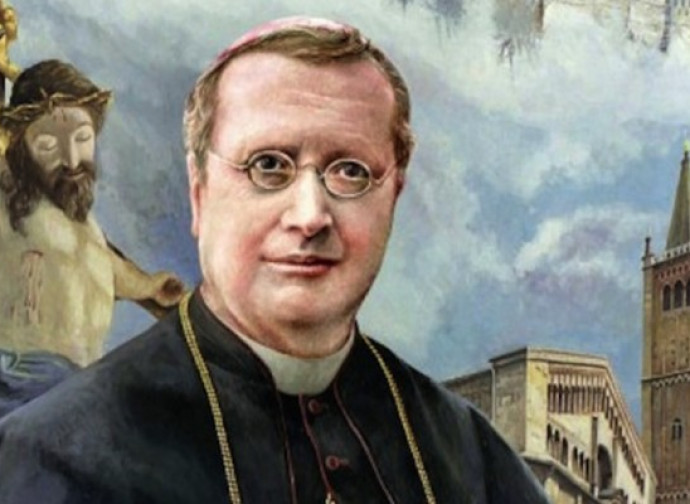Saint Guido Maria Conforti
The founder of the Xaverians never ceased to encourage the evangelisation of non-Christians in the world.

Reading about the life of Saint Guido Maria Conforti (1865-1931) makes us long for pastors like him. The founder of the Xaverians never ceased to encourage the evangelisation of non-Christians in the world and the need to rekindle the authentic faith in the Italian regions, which had become fertile ground for ideologies in a country that was becoming secularised.
Eighth of ten children, he received elementary education from the Lasallians. His vocation already matured in those years: on his way to school he would make a daily visit to church to contemplate the crucifix. “I looked at Him and He looked at me and it seemed to me that He said many things,” he recalled as a bishop, calling Christ on the cross “the great book on which the Saints were moulded and on which we must also mould ourselves”.
Reading the life of Saint Francis Xavier in the seminary inspired his missionary drive. His health problems prevented him from fulfilling his dream of going on mission, but this did not discourage him: in 1895 he founded a missionary seminary which years later would become the Congregation of St Francis Xavier for Foreign Missions. At the end of the century his first two missionaries left for China. He was only able to go there in 1928, prophetically saying that “in times not far away it will perhaps have the greatest influence on global equilibrium”. The institute spread rapidly in Italy and abroad, attracting numerous vocations. Guiding the congregation was not the only activity in which he was engaged. Three years after an interlude as Archbishop of Ravenna (a post he had left due to deteriorating health), he became Bishop of Parma and ran the diocese for almost 24 years, until his death.
He promoted the formation of the laity, the Catholic press, and the culture of the clergy, whom he urged to sanctity. He travelled thousands of kilometres to visit every corner of his diocese, listening to all those who came to him for material or spiritual needs. He endeavoured to appease the social conflicts between farmers and landowners, he comforted wounded veterans of the First World War, he welcomed the birth of the Popular Party, even though he was convinced that the commitment of Catholics in politics should mainly concern the laity. He confronted Italo Balbo, helping to resolve the affair that caused bloodshed in Parma in August 1922.
The faithful already considered him a saint during his time on earth. As a witness of the time recounts, “people knelt in the middle of the street to receive the bishop's blessing”. His every thought was focused on evangelization: in his letter-testament he reminded the Xaverians to be constantly animated by “a spirit of living faith that can make us see God, seek God, love God in everything, whetting in us the desire to spread His Kingdom everywhere”.
